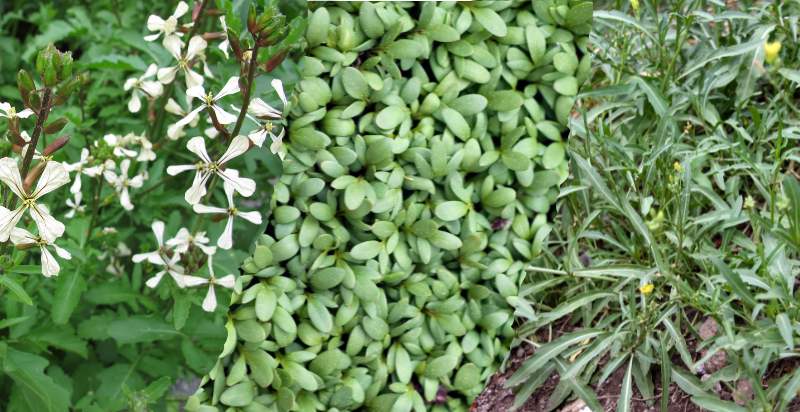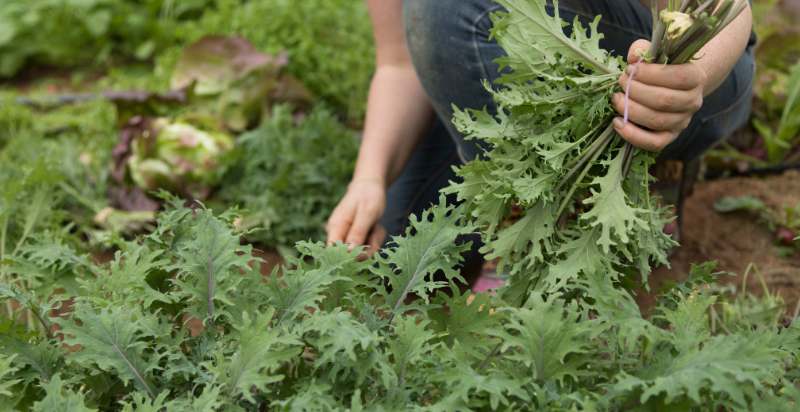The Garden rocket is a leafy green vegetable that belongs to the Brassicaceae family. It has a peppery flavor and is related to arugula, watercress, and mustard greens. The plant can be used fresh in salads or cooked like other vegetables. Garden rocket grows wild throughout much of Europe and Asia, but it is cultivated for commercial use in many countries worldwide.
What is a Garden Rocket?
The Garden rocket is an annual edible plant that grows wild in many parts of Europe and Asia. It belongs to the Brassicaceae family, including arugula, watercress, and mustard greens. The leaves have a pungent flavor described as “peppery” or “spicy.” Garden rocket has smooth leaves, usually green, but some varieties are purple or reddish.
Types of Garden Rocket:
There are several types of garden rockets, including common (Eruca sativa), wild (Diplotaxis tenuifolia), and perennial (Lepidium sativum). Common garden rocket is the most widely cultivated variety and has a milder flavor than its wild counterpart. Wild garden rockets have more pungent leaves and are usually found growing wild in fields and on the edges of forests. Perennial garden rocket is a variety that can be grown from seed and will come back year after year if it is properly cared for.

History of Arugula Plant:
The use of garden rockets dates back centuries. Ancient Romans believed that eating this leafy green effectively treated various ailments, including depression and fever. In the Middle Ages, Europeans began cultivating garden rockets for culinary and medicinal purposes. Today, it is widely grown throughout Europe, Asia, and North and South America.
Description of Garden Rocket :
The Garden rocket is an annual plant that only lives for one season. The plant grows to about two feet and has hollow stems with a few branches at the top. The leaves are bright green, smooth, and usually oval. They have a pungent flavor described as “spicy” or “peppery.” Garden rockets can be grown from seed and produce edible leaves in about six weeks.
Cultivation of Garden Rocket:
Garden rocket is relatively easy to cultivate and can be grown from seed or cuttings. The plant has a short growing season, usually taking only 4-6 weeks from planting to harvest. When mature, the plants reach about 30 cm (1 ft.) in height and produce clusters of small white flowers. Garden rocket does best in slightly alkaline soil with a pH between 6.0-7.5 and plenty of sunlight, although it will tolerate some shade. It should be watered regularly, but not too heavily, or it will become waterlogged and rot.
Nutritional Content of Arugula:
Garden rocket is an excellent source of Vitamin A and C and minerals. It also contains dietary fiber, folate, and antioxidants. Eating garden rocket regularly can help improve overall health by providing your body with essential nutrients and protecting it from disease-causing free radicals.
Uses of Arugula Plant:
Garden rocket is primarily used in salads but can also be cooked like any other leafy green vegetable. The most popular way to enjoy this peppery green is to toss it into a salad along with other ingredients such as tomatoes, cucumbers, onions, garlic, nuts, cheese, or fruits.
Garden rockets can also be added to sandwiches and wraps or used as a pizza topping. Its slightly bitter taste makes it a great addition to soups and stews. Finally, the garden rocket can be dried and ground into a powder, which can be used as a seasoning.

How to Plant a Garden Rocket?
The Garden rocket is a fast-growing, easy-to-grow plant that is a great addition to any garden. This leafy green has a sharp and refreshing flavor that will spice up salads or dressings. When planted in the right conditions, it can thrive for many years.
This will discuss the basics of planting garden rockets and everything you need to know about cultivating this delicious vegetable.
Choosing a Location
When choosing where to plant your garden rocket, remember that it needs full sun for at least 8 hours per day. Choose an area with well-draining soil, as garden rockets prefer soil with pH levels between 6 and 7.5. To ensure optimal growth, it is also important to avoid planting in areas prone to frost.
Preparing the Soil
Before you start planting, be sure to weed and prepare your soil thoroughly. Mix a generous amount of compost or manure into the top few inches of soil to do this. This will help promote good drainage and give your garden rocket the nutrients it needs for strong growth. Additionally, if your soil is very sandy or clay-like, consider adding some organic matter, such as peat moss, to make it more workable.
Planting Arugula
Once you’ve chosen a location and prepared the soil, it’s time to plant your garden rocket! Start by sowing seeds about ½ inch deep and 6 inches apart in rows. Once the plants have grown to about 2-3 inches tall, you can thin them out, so they are spaced 3-4 inches apart. This will ensure enough room for each plant to grow without becoming overcrowded.
Caring for Garden Rocket
Once your garden rocket is planted, it’s important to maintain it! Water regularly, ensuring the soil doesn’t dry out completely between waterings. Additionally, use a layer of mulch around the base of each plant to help retain moisture and suppress weeds. Finally, fertilize monthly with a balanced organic fertilizer or manure tea solution to give your plants an extra boost of nutrients.
Harvesting Garden Rocket
The arugula plant is ready to be harvested when the leaves are full and dark green. To harvest, snip off individual leaves or entire plants as needed. Be sure to take only a few at a time so the plant can continue to thrive.
Growing garden rockets is a great way to add flavor to your salads and dressings! With the right location, soil preparation, and maintenance, you can have a thriving garden of this delicious vegetable in no time. So get out there and start planting your garden rocket today!

How to Care for the Garden rocket?
To keep your garden rocket healthy and thriving, following a few simple steps for proper care is important.
- Water: Garden rockets should be watered regularly, ensuring the soil stays dry completely between waterings. A mulch layer around each plant’s base can help retain moisture and suppress weeds.
- Fertilize: Fertilize your arugula plant monthly with a balanced organic fertilizer or manure tea solution to give plants an extra boost of nutrients.
- Weed: Regularly remove any weeds that may have grown near your garden rocket to prevent competition for light, water, and nutrients.
- Harvest: When harvesting leaves from your garden rocket, take only a few at a time so the plant can continue to thrive.
These simple steps will help ensure a healthy rocket garden for you to enjoy!
Preventions From Pests And Diseases:
To protect your garden rocket from pests and diseases. These include rotating crops yearly, keeping weeds under control, and ensuring the soil is well-drained. Additionally, be sure to inspect your plants regularly for signs of pests or disease so that you can take action quickly if needed.
Consider using organic pesticides or fungicides as a preventative measure against pests and diseases. Be sure to choose products specifically designed for edible plants before applying them to your garden rocket. Finally, encouraging beneficial insects such as ladybugs can help keep pest populations in check naturally!
How to Harvest Arugula?
The Garden rocket is ready to be harvested when the leaves are full and dark green. To harvest, snip off individual leaves or entire plants as needed. Be sure to take only a few at a time so the plant can continue to thrive.
Consider succession planting to extend your harvest season. This will allow you to stagger your planting of garden rockets throughout the spring and summer months for a continuous supply of fresh greens!
Harvesting garden rockets is easy and can be done by simply snipping off individual leaves or entire plants as needed when they reach maturity. By following these steps, you’ll have a delicious and nutritious crop of garden rockets all season long!
How to Store homegrown Garden Rockets?
Garden rocket is best eaten fresh, but it can be stored for later use if you have a surplus of greens. The easiest way to store garden rockets is to wash and dry the leaves, then wrap them in a paper towel or cloth and place them in an airtight container in the refrigerator. Stored this way, your homegrown rocket should last up to one week.
If you’re looking for a longer-term storage solution, you can freeze your garden rocket by blanching the leaves and then placing them into freezer bags or containers. The frozen garden rocket will stay good for up to three months.
How to cook with a Homegrown Garden Rocket?
Garden rocket is a great way to add flavor and nutrition to your meals. The small leaves of this spicy green are perfect for tossing in salads, adding to sandwiches and wraps, stirring into soups, or using as a pizza topping. Garden rocket also pairs well with other cooked vegetables like tomatoes and onions.
When cooking with garden rocket, you don’t need to do much more than add the greens right before eating – they have such a fresh flavor that they don’t require any additional ingredients. However, if you’d like to give them some extra oomph try adding some grated parmesan cheese, balsamic vinegar, or a drizzle of olive oil.
Garden rocket is an easy and delicious way to add extra pizzazz to your meals. With minimal effort, you can enjoy the fresh flavor of the homegrown garden rocket in any dish!
By following these steps and taking good care of your garden rocket plants, you’ll be able to harvest a healthy crop of nutritious greens all season long. Enjoy your homegrown garden rocket in salads, sandwiches, soups, and more – it’s sure to become a favorite ingredient in your kitchen!
Potential Risks From Arugula:
Garden rocket is generally safe and packed with vitamins, minerals, and antioxidants. However, it’s important to note that certain varieties of this spicy green are known to contain high levels of oxalates which can be toxic in large quantities.
It’s best to avoid eating garden rocket if you have a history of kidney stones or are on any medication that might interact with oxalates. Additionally, pregnant women should not eat raw garden rockets due to the risk of food poisoning.
To ensure your safety when consuming homegrown garden rockets, always cook the leaves thoroughly before eating and watch for any signs of pests or disease. Taking these precautions will help ensure your health while allowing you to enjoy the delicious flavor of this nutritious vegetable.
Conclusion
Garden rocket is a versatile and nutritious vegetable easily grown in any home garden. With proper care and maintenance, you can reap the rewards of a healthy crop of homemade rockets all season long! Harvesting, storing, and cooking with homegrown greens is simple and will allow you to enjoy this spicy green for weeks or even months.
Just remember to take precautions when consuming garden rockets, as some varieties may contain high levels of oxalates which can be toxic in large quantities. Enjoy your delicious homegrown garden rocket today!
- Everything You Wanted to Know About Red Tamarillos - June 2, 2025
- A Guide to Tulips: Everything You Need to Know & More… - June 2, 2025
- Guanabana: Description, Flavor, Benefits, And Uses - May 27, 2025

5 thoughts on “What Is a Garden Rocket? How to Plant, Grow, and Harvest Arugula ”
Comments are closed.